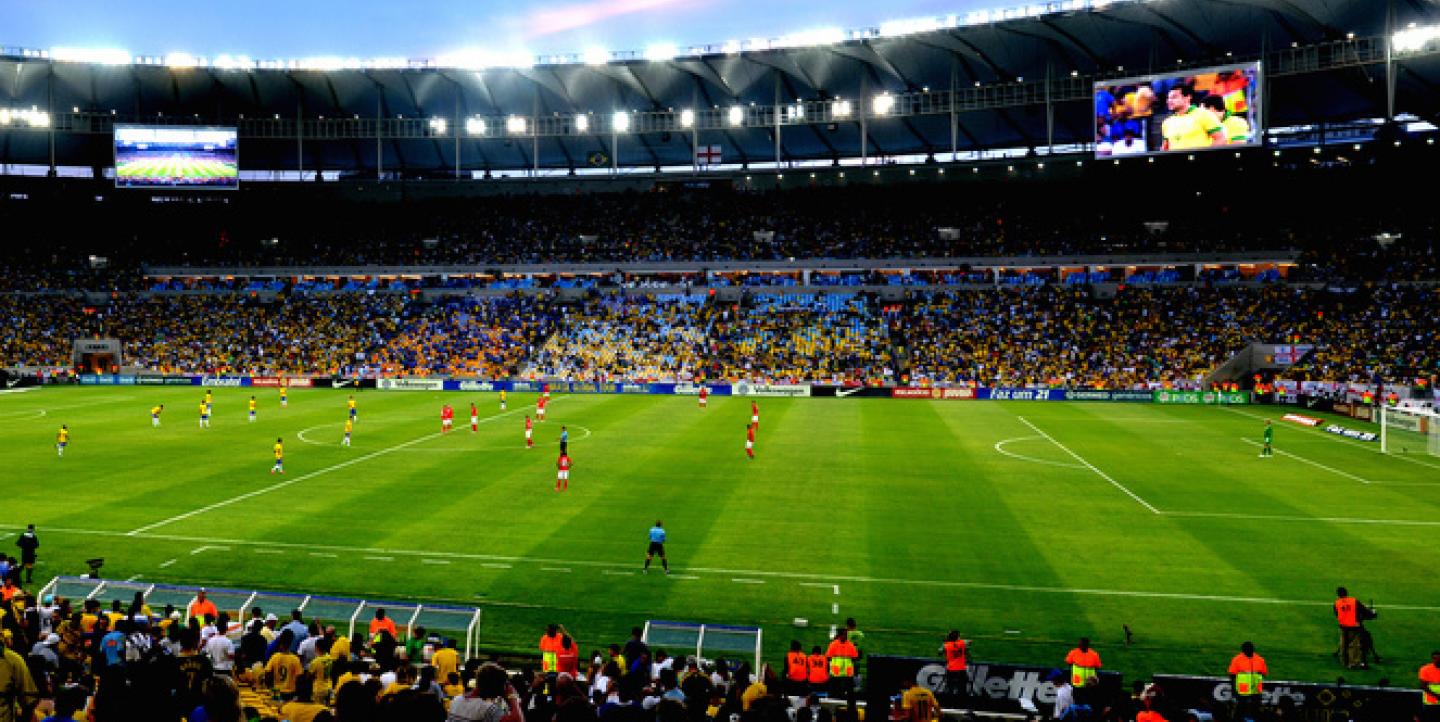Updated June 13, 2014, at 12:35 EST.
With the start of World Cup soccer just a day away, tens of thousands of journalists are gearing up to cover one of the most-watched sporting events in the world. From covering dozens of matches to capturing the controversy and protests across Brazil, journalists reporting on the action have a daunting task ahead of them.
Whether you're reporting on the World Cup from Brazil or from outside the country, here are useful tools and resources to keep handy:
The basics
To follow the event's basics, from location to schedule to scoring, the International Federation of Association Football (FIFA) website is a good starting point. ESPN is offering comprehensive coverage, including an “Everything you need to know about the World Cup” piece. For comprehensive Spanish-language coverage, Univision Deportes is also covering all aspects of the Cup.
Countless sites will monitor scores and standings, including Google. As reported by The Atlantic, some “good soccer samaritans” on Reddit have created calendars that you can easily import into your own scheduling apparatus, like Google Calendar, to make sure you don’t miss a single match.
Prep your Twitter
There’s no doubt that Twitter will be abuzz during the Cup. According to Twitter UK, there have already been more World Cup-related tweets this year than there were during the entire 2010 tournament.
Twitter and FIFA have launched the hashtags #WorldCup, #Brazil2014 and #Brasil2014. Many teams also have their own dedicated hashtags, such as the U.S. team’s #1N1T and #OneNationOneTeam.
Official accounts worth following include @FifaWorldCup, the official source for all things World Cup, and @Fifacom, for news from the international football federation. To help you prep your Twitter feed for the Cup, Sports Illustrated writer and reporter Richard Deitsch has put together a Twitter list of “must follow” handles.
Thirty of the 32 nations competing in this year’s World Cup have official accounts on Twitter, which you can follow here. More than 300 of the players from the 32 competing nations are on Twitter, with representatives of all the competing teams having a presence the platform—follow them here. And here’s a fun “team” graphic of the most-mentioned players on Twitter in the past three months.
Track the event live
Because we can't all make it to Brazil, a lot of people are working to make this World Cup one of the most accessible to follow via computer, tablet or mobile device.
Mashable’s list of six apps to watch includes ESPN FC Soccer & World Cup, FIFA '14, FIFA Official, Onefootball Brasil, Travel Portuguese Futebol Edition and theScore (availability of all apps varies from country to country). To those, CNET’s list adds Univision Deportes and Watch ESPN.
Accessibility to live matches and streaming options depends on what country you’re in. To find out what network will broadcast the tournament in your country, go to LiveSoccer. The Spanish-language network Univision will stream every match of the tournament’s first two rounds for free on its website and Univision Deportes mobile apps for iOS and Android.
And for a steady stream of World Cup photos from fans across Brazil, WorldCup Gram displays pictures that users upload to their Instagram account during the event.
The local scene
While the mood across Brazil is bound to be festive, protests are also expected. A recent Pew Global survey found that 61 percent of Brazilians think the event will be bad for the country because it "takes money away from areas such as education and health."
To follow the local conversation via social media, the blog Rio Gringa has rounded up some important hashtags that reporters can look out for during the Cup, such as #VaiTerGreve, meaning "There will be strikes.”
If you’re heading out into the streets, the Committee to Protect Journalists’ journalist security guide covers a wide variety of safety practices for journalists, from covering violent conflicts to basic preparedness and digital security. Recently released in Portuguese specifically for the Cup, the guide is also available in Arabic, Chinese, English, French, Russian and Spanish.
The Brazilian Association of Investigative Journalism (ABRAJI) has also developed a guide packed with tips and anecdotes from pros who have experienced risky incidents while covering protests, available in English and Portuguese.
Please share any additional resources or tools to cover the World Cup in Brazil in the comments.
_Image courtesy of Flickr user Digo_Souza under a Creative Commons license._
Jessica Weiss is a Bogotá-based freelancer.

